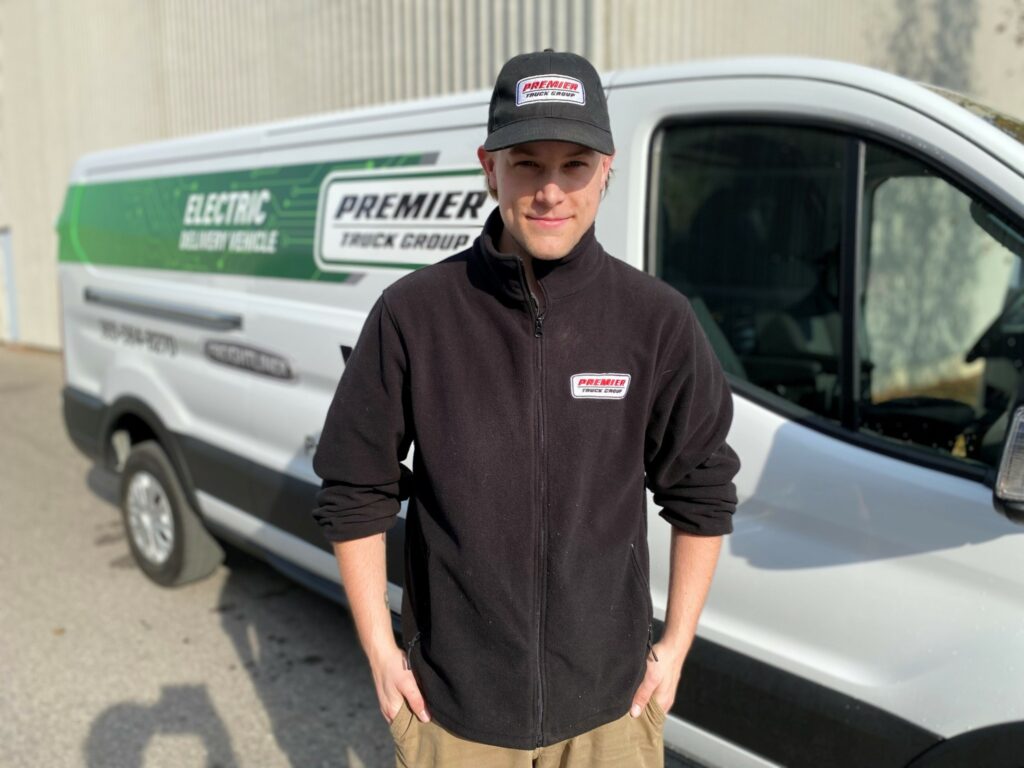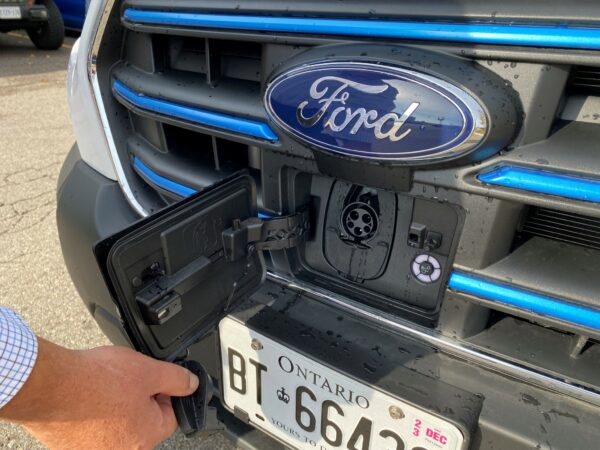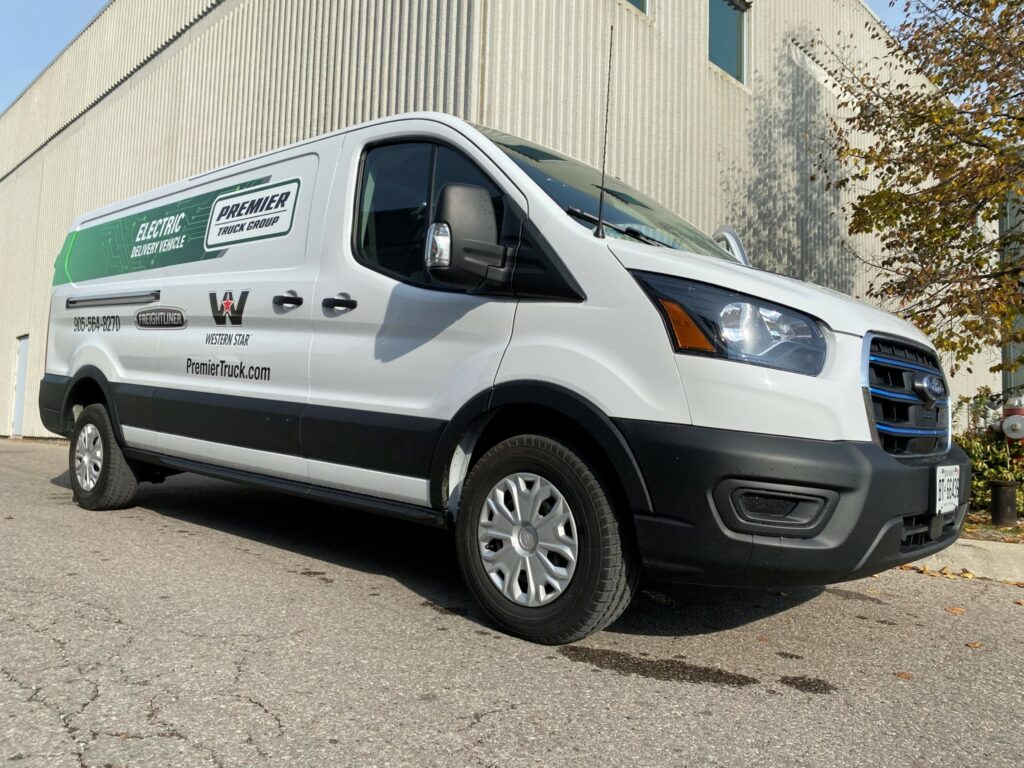Premier Truck Group deploys electric vehicle for retail parts delivery
Truck fleet and maintenance managers in the Toronto area always breathe a little easier when urgently needed parts arrive. Now some of those parts delivered by Premier Truck Group are arriving in an electric van, which will contribute to cleaner air for all to breathe.
Gary Van Ryswyk, general manager of Premier Truck Group in Mississauga, Ont., took delivery of the company’s first electric Ford Transit van Nov. 1 and immediately put it to work delivering parts out of the company’s Mississauga retail parts store on Kennedy Rd.
“We run 10 delivery vehicles out of here delivering parts all over the GTA,” he told TruckNews.com. “With that van, we’ve been running 150-170 km a day and we can do that on one charge.”
Premier wanted to better familiarize itself with the emerging technology. “The best way to learn about it is to try one,” said Van Ryswyk. “We looked at the routes we run and said, ‘We can make this work on half our routes.’”

That was enough to convince the company to order two electric delivery vans. They’re uniquely decaled to show off the environmental initiative. Van Ryswyk said parts delivery is an ideal application for electrification.
“We don’t run a lot of really heavy loads,” he said. “We deliver a lot of filters, small truck parts, engine parts. We’d never max out the load on it.”
Immediately, the delivery van was a hit with its driver, Dalton Cook. “The biggest issue he has is every customer he goes to, he has to show them the van. They ask a lot of questions,” said Van Ryswyk.
The driver also appreciates the handling with its low center of gravity and the regenerative braking.

The van came with a Level 2 charger, but Premier found the charge time took too long when plugged into 110-volt power. An upgrade to a 220-volt outlet fixed that, allowing the van to fully charge overnight.
The current van does three to four runs a day, each about 30-50 km round-trips. Now Van Ryswyk is in the process of calculating the total cost of operation.
“We track everything by cost-per-kilometer,” he said. “Now I’ve got to figure out what am I going to charge myself to recharge so I can build in my cost-per-kilometer and see how much I’m saving.”
Typically, the company runs its vans for four years. Van Ryswyk is hopeful the electric models will last six on their original batteries.
“The van without the batteries is a shell,” he said. “We are starting to do some research on how we can maintain the batteries, because that is the heart of the vehicle.”
Other branches of Premier Truck Group (there are 39 in all, nine in Ontario) will no doubt be watching closely to see if it makes sense for them to electrify as well.
“It’s more about being able to get them,” Van Ryswyk said. “We were lucky to get this van because they’re hard to come by. I think we’ll end up using them more and more. It all comes down to putting the van into the right application, no different than the trucks we sell.”
The vans deliver parts from 7:30 a.m. until 9 p.m. And when it comes to range, one thing hasn’t changed.
“One thing we learned is, it still depends on the guy pushing on the pedal,” Van Ryswyk said. “If he pushes hard, it’s going to use more [energy]. If he treats it properly it’s going to go further, no different than a gasoline or diesel engine.”

Have your say
This is a moderated forum. Comments will no longer be published unless they are accompanied by a first and last name and a verifiable email address. (Today's Trucking will not publish or share the email address.) Profane language and content deemed to be libelous, racist, or threatening in nature will not be published under any circumstances.